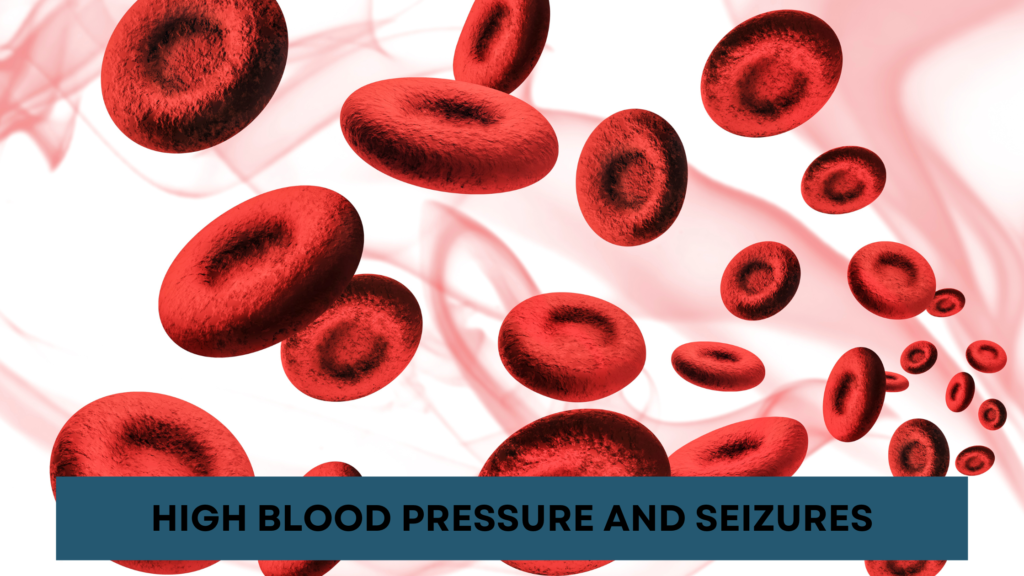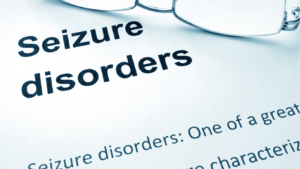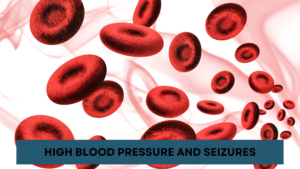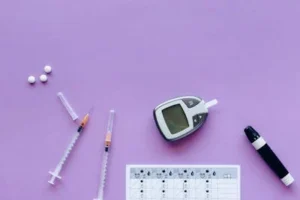Can High Blood Pressure Cause Seizures?

Introduction: Blood Sugar Control Solutions: Managing Diabetes Effectively
High blood pressure, medically known as hypertension, is a common condition characterized by elevated blood pressure levels in the arteries. While hypertension primarily affects the cardiovascular system, its impact extends beyond the heart and can potentially lead to various complications, including seizures. Let’s delve into the relationship between high blood pressure and seizures, exploring the mechanisms, risk factors, and management strategies associated with this phenomenon.
Understanding the Link Between High Blood Pressure and Seizures
High blood pressure exerts significant pressure on blood vessels throughout the body, including those in the brain. When blood vessels in the brain become damaged or compromised due to chronic hypertension, it can disrupt normal brain function and increase the risk of neurological complications, including seizures.
Mechanisms Behind Hypertension-Related Seizures
One of the primary mechanisms linking high blood pressure to seizures is hypertensive encephalopathy, a condition characterized by swelling and dysfunction of the brain due to uncontrolled hypertension. This swelling can lead to changes in cerebral blood flow and intracranial pressure, triggering seizure activity in susceptible individuals.
Risk Factors for Seizures in Hypertensive Individuals
Several factors may increase the likelihood of seizures occurring in individuals with high blood pressure. These include the severity and duration of hypertension, underlying neurological conditions, medication non-compliance, substance abuse, and other comorbidities such as kidney disease or diabetes.

Management Strategies for Preventing Seizures in Hypertensive Patients
Effective management of hypertension is essential for reducing the risk of seizures and other related complications. This typically involves lifestyle modifications such as adopting a healthy diet, engaging in regular exercise, reducing stress, and avoiding tobacco and excessive alcohol consumption. Additionally, medications prescribed to lower blood pressure, such as ACE inhibitors, beta-blockers, or diuretics, can help prevent neurological complications associated with hypertension.
Conclusion
While high blood pressure can potentially increase the risk of seizures through various mechanisms, proactive management of hypertension and timely medical intervention can significantly reduce this risk and improve overall health outcomes for affected individuals. Understanding the connection between hypertension and seizures, along with implementing preventive measures and seeking appropriate medical care, is crucial for minimizing the impact of these conditions on neurological health and quality of life.
Frequently Asked Questions about High Blood Pressure and Seizures
Can high blood pressure cause permanent brain damage leading to seizures?
Yes, chronic hypertension can cause structural and functional changes in the brain, increasing the risk of permanent neurological damage and recurrent seizures if left untreated.
Are there specific types of seizures associated with hypertension?
While various types of seizures can occur in individuals with hypertension, hypertensive encephalopathy commonly manifests with generalized seizures or convulsions.
Can sudden spikes in blood pressure trigger seizures?
Yes, sudden and severe increases in blood pressure, known as hypertensive crises, can precipitate seizures in some individuals, particularly those with poorly controlled hypertension.
Is it possible for hypertension-related seizures to occur without any prior symptoms of high blood pressure?
Yes, hypertension-related seizures can occur suddenly, even in individuals who may not have experienced any noticeable symptoms of high blood pressure previously. This underscores the importance of regular blood pressure monitoring and preventive healthcare measures.
Can medications used to treat hypertension increase the risk of seizures?
While rare, certain antihypertensive medications, particularly those that affect electrolyte balance or cerebral blood flow, may increase the risk of seizures in some individuals. Seeking urgent medical assistance is imperative upon experiencing these symptoms.
What are the warning signs of a hypertensive emergency that may lead to seizures?
Warning signs of a hypertensive emergency, which may precede seizures, include severe headache, visual disturbances, shortness of breath, chest pain, confusion, and nausea or vomiting. It’s crucial to address any apprehensions regarding medication side effects with a healthcare professional.
Can lifestyle changes alone effectively prevent seizures in individuals with hypertension?
While lifestyle modifications such as diet and exercise play a crucial role in managing hypertension, they may not be sufficient to prevent seizures in all cases. Proper medication management and regular medical follow-ups are essential components of comprehensive seizure prevention strategies.
Are there any dietary supplements or alternative therapies that can help prevent seizures in hypertensive individuals?
While some dietary supplements and alternative therapies may claim to lower blood pressure or reduce seizure risk, their efficacy and safety in individuals with hypertension are not well-established. It’s essential to consult with a healthcare professional before incorporating any supplements or alternative treatments into your regimen.
Can stress management techniques help reduce the risk of seizures in individuals with hypertension?
Yes, stress management techniques such as meditation, deep breathing exercises, yoga, and mindfulness practices can help lower blood pressure and reduce the risk of seizures by promoting relaxation and reducing the body’s physiological response to stress. Click the link above to explore more about Stress Management Techniques.
Is there a genetic predisposition to developing seizures in individuals with hypertension?
While genetics may play a role in both hypertension and seizure disorders, the specific genetic factors contributing to their co-occurrence are not fully understood. Further research is needed to elucidate the genetic mechanisms underlying this relationship.
Read other related topics on our Blog page below...

10 Beauty Benefits of Massage Therapy
10 Beauty Benefits of Massage Therapy Unlocking the Beauty Benefits of Massage Therapy: Enhance Your Glow Naturally Massage therapy isn’t just a luxurious indulgence; it’s

High Blood Pressure and Epileptic Seizures
Unlocking the Connection Between High Blood Pressure and Epileptic Seizures Introduction: High Blood Pressure and Epileptic Seizures Epilepsy, a neurological disorder characterized by recurrent seizures,

Can High Blood Pressure Cause Seizures?
Can High Blood Pressure Cause Seizures? Introduction: Blood Sugar Control Solutions: Managing Diabetes Effectively High blood pressure, medically known as hypertension, is a common condition

Blood Sugar SOS: 10 Tips for Blood Sugar Control!
Blood Sugar SOS: 10 Tips for Blood Sugar Control! Table of Contents Introduction: Blood Sugar Control Solutions: Managing Diabetes Effectively Managing diabetes necessitates vigilant oversight

The Secret Weapon Against Diabetes: Meet Amiclear!
Discover the Secret Weapon Against Diabetes: Meet Amiclear! Introduction Diabetes presents as a persistent health condition impacting millions globally, distinguished by heightened levels of glucose

10 Basics of Wealth Management: Your Pathway to Financial Success.
10 Basics of Wealth Management: Pathway to Financial Success Introduction: 10 Basics of Wealth Management – Wealth Management Demystified Welcome to the world of wealth
2 Responses